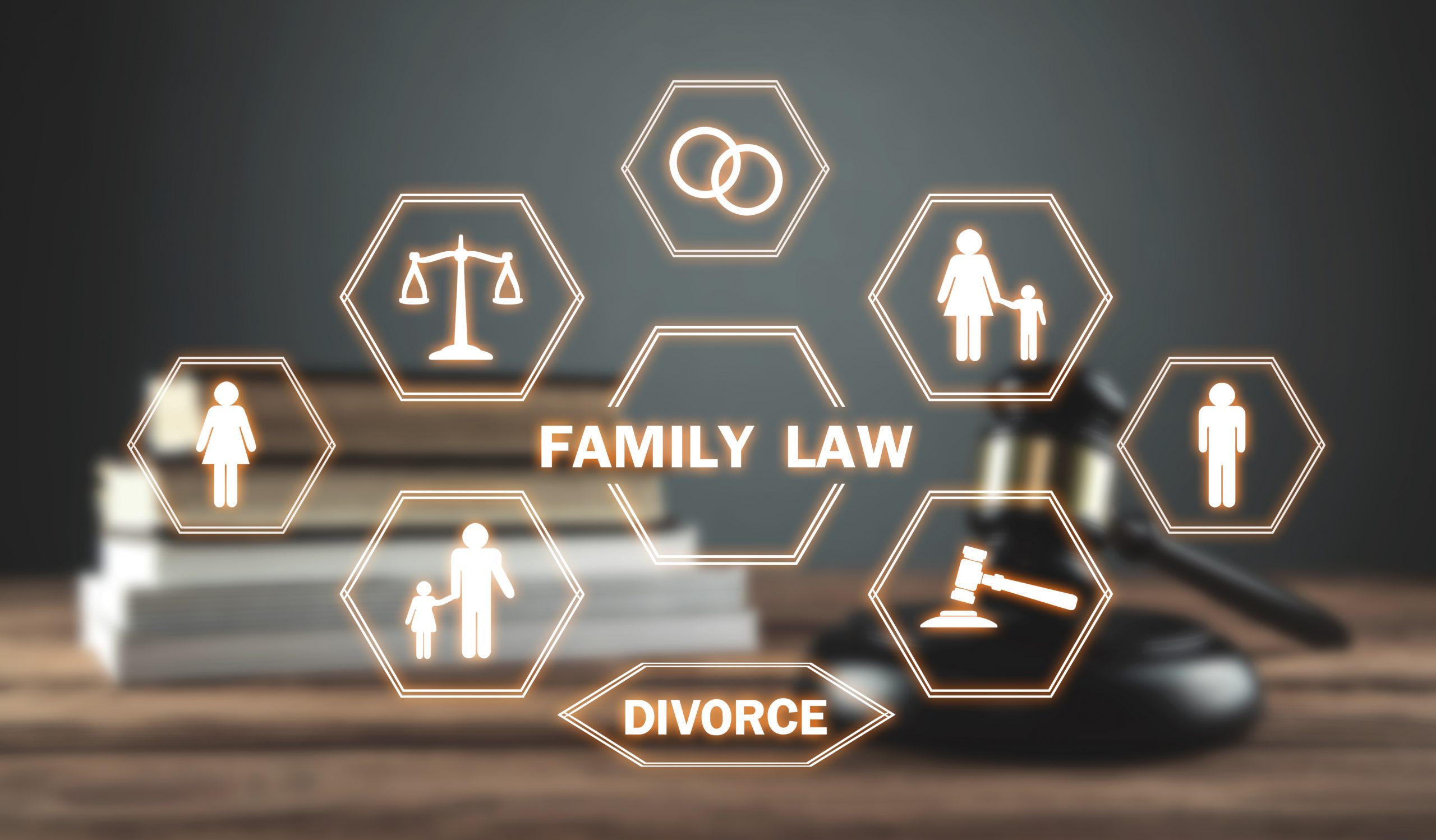In a second marriage, naming children from previous relationships to serve as co-trustees is likely a costly mistake.
My previous blog post of August 20, 2020, entitled, “In a Second Marriage, the Children of the Surviving Spouse Win Significantly Most of the Time” discusses the corrosive effect of actions of children of a surviving spouse to diminish or eliminate inheritance rightfully due children of the first spouse to die. This blog post discusses the significant negative effects in naming, as co-trustees, children of each spouse to serve after the death of the surviving spouse.
The Typical Plan
Here is the Typical estate plan for a married couple in a blended family: A married couple (herein “couple”) with both having children from a previous relationship (typically referred to as a “blended family”) wants their children to jointly manage their property during times of incapacity and after death. Couples usually have an idea of how they want to divide their property after the death of the surviving spouse; typically, the division is 50%/50% or an even share for each child. Couples also typically reason, “out of fairness” and to put into place “checks and balances,” name one or more children from each spouse to jointly administer the trust. At that point the reasoning stops, and an inexperienced estate planning attorney will draft the plan.
Here are the factors that are TYPICALLY Not Considered that WILL Effect Estate Plans.
- Plans typically are not shared with the children in advance, so they are surprised at what they find out after the death of the surviving spouse.
- The surviving spouse did not live up to the agreed expectations of both spouses (see my blog post-dated August 20, 2020, entitled, “In a Second Marriage, the Children of the Surviving Spouse Win Significantly Most of the Time”).
- Surviving spouses children become more actively involved after the death of the first spouse (see my blog post-dated August 20, 2020, entitled, “In a Second Marriage, the Children of the Surviving Spouse Win Significantly Most of the Time”).
- Frequently one spouse brings more children to the marriage than the other,
- One spouse likely brings more money and property than the other, and
- Children frequently do not know each other well enough, live far apart from each other, and do not socialize with each other. Typically children know of the other spouses children solely because of their parents’ marriage.
Family Values WILL Affect Estate Plan Enforcement.
Typically children of each spouse are not taught to be loving, understanding, and trusting of the other spouse’s children. As such the Typical Plan unwittingly becomes the catalyst in the future family fight. Estate plans usually do not start family fights. However, once a fight is started, improperly created plans can and do negatively heighten emotions. This is the exact opposite of what couples expect to achieve – a harmonious transition.
The Elephant in the Room.
Before discussing the reasons why the above plan will likely fail, let’s get the elephant out of the room – despite wide believe, we Americans are typically not exceptional. I am an American and happily carry my culture with me through life, so I get our mind-set of exceptionalism– it has gotten us far. At the same time, from my perspective, it has unintended negative ramifications on estate plans in the family realm. The following is not an indictment, but a statement of the typical underlying assumption we Americans carry with us: Most of us generalize our exceptionalism into everything about us, including the idea our children are exceptional. They will know what we want and will follow our written expectations. Well, sorry to say, while there are a handful of such exceptional American families, a few I have had the opportunity to work with, a significant majority of families fall short. This paragraph is my opinion and a distillation of numerous observations of married couples in blended families planning their estates over the years.
Commoditization and Perceived Value of Estate Planning Has Increased Legal Fees.
Finally, before discussing the reasons why the Typical Plan frequently fails, at the date of publication of this blog post, I have over 25 years in estate planning and litigation experience in enforcing written desires of many people.
The value of a thought-out plan is hard to convey in a one or two-sentence sound bite that cuts through the mindset of most individuals. Because planning with revocable living trusts in recent years has been commoditized and reduced to a transactional event, the unintended consequence is to significantly increase litigation after death. What could have been effectively addressed at the planning stage is now shifted to after death where legal fees are significantly more. As of the date of publication of this blog post, I now make more money litigating defective plans (like the Typical Plan discussed herein) than helping people plan to minimize the legal speed bumps of the family transition. I wish the opposite was true.
Five (5) Reasons the Typical Estate Plan has a High Chance to Fail
Child/Co-Trustee have Different Interests.
Greed and perception of fairness are the main differences. Seldom do children in blended families agree with their parents’ division of property. While a child is to act as a fiduciary, which means s/he is to look out for the best interests of the trust and beneficiaries, if they too are a beneficiary, all of a sudden both interests will compete. Hence that is why courts apply higher scrutiny to actions of a trustee/beneficiary. In other words, courts look closer at actions of individuals who are trustees and beneficiaries to ensure their actions are not to take advantage of other beneficiaries.
Division 50%/50% Plan.
In The Typical Plan where the Couple divides their estate 50%/50% representing both spouses’ share: considering each spouse brings a different number of children, for discussion purposes the wife brings 3 children and the husband brings 2. Here are typical thoughts of the children co-trustees: On the one hand, the child trustee of the husband wants to protect the 50% for 2 beneficiaries. On the other hand, the child of the wife feels 50% is not fair because they have to share among 3 – an unfair luck of the draw.
In an estate like this, consideration should be given to likely perceptions of the children, family dynamics, which parent brought what, possible discussion of division beforehand and explanation of the plan, and documents drafted to recognize the circumstance and reasoning behind the division of the estate. Legal fees spent here will save or minimize significant legal fees in the future after death when you cannot speak for yourself.
Division Divided Evenly Among All Children Plan.
Assuming the same number of children for each spouse in the previous example, but the spouses divide their estate evenly among all children, here are typical thoughts of the children co-trustees: The child trustee of the wife likely believes the fair division of the estate is equally among all children. The child trustee of the husband will likely believe the estate should have been divided evenly based upon each spouse share – 50%/50% and thus unfair.
The analysis above is the same, but language in the trust will be different to enforce the husband and wife’s expectations.
Likelihood of Impasse.
Since both children have conflicting priorities, the chance of an impasse is higher. In the Typical Plan emotions frequently get in the way of otherwise simple decisions such as to sell property, pay taxes and expenses, or to distribute funds to beneficiaries. I know imagining simple decisions becoming difficult is hard, but emotions frequently couched in a plausible reason get in the way. One trustee wants to do X, the other says no. Where two trustees serve, the possibility of an impasse is high. In the example of this paragraph, the child/trustee who says no essentially has the power to keep the administration status quo. I do not believe couples intend a child trustee should possess such overriding authority. While this authority has pros and cons, typically however, the power is wielded negatively.
To solve this problem, consideration should be given to naming an independent 3rd party to break ties where even number of trustee/beneficiaries are serving. Discussion with a pensive estate planning attorney would be in order to decide who that individual is. Factors such as ability to resist unreasonable conduct of a trustee/beneficiary, ability to organize and think through clutter, and be actually independent. Other factors need to be considered. Crafting of language here needs to be clear to avoid or minimize litigation.
At a Minimum – Double the Legal Fees.
Since each child/co-trustee has divergent interest, both will likely lawyer up. At that point, the value of the estate is the limit attorneys will continue representation. Couples do not imagine their choice to name children from both sides of the family to serve as co-trustees is an inheritance clause for attorneys they did not know. Many times this will be detrimental to the couple’s children because of the degradation of estate value to pay legal fees. Couples are surprised to learn laws frequently exist in most, if not all, of the states that prevent estate plans from limiting attorney fees. While I get why such laws exist and serve a public purpose, at the same time, under “color of reasonable necessity” (my made up term to remove the legalese) attorneys frequently claims an action is/was required to justify their legal fees. Payment of attorney fees is so fraught with nuance, traps, and preference of courts to pay, avoiding or eliminating attorneys’ involvement is the best way to keeping your estate plan intact and keeping family harmony.
To solve this problem, consideration should be given to appointing one child as sole trustee with clearer accounting requirements, or again placing an independent trustee to break impasses. Spending a little more in independent trustee fees will save much more in unnecessary attorney fees.
Trustee/Children – Mistrust or Do Not Know Each Other.
This is the most frequent emotion child/co-trustees express to me when I am assisting them in administering trusts with another child/trustee. Nothing more needs to be written to spark the imagination, likely negative, where this can go.
The Surviving Spouse Did Not Live Up To The Agreed Expectations Of Both Spouses.
Frequently the surviving spouse (the last spouse to die), for whatever reason, did not follow the estate plan as both spouse agreed when the plan was created. The frequent result is the survivor diminished the estate without accountability. This immediately causes suspicion of the child of the deceased who is serving as co-trustee. As such, the child/trustee of the first spouse who died wants to reconstruct what happened to determine what is fair. The child of the surviving spouse typically does not want such accountability – s/he just wants to move on and administer the property that existed at the date of death of the survivor. Not much imagination is needed here to picture significant legal fees. All the plan did is inherit attorneys they did not know. They also set their family on an emotional roller coaster ride.
While all families travel similar paths of administration, nuances exist and need special attention in crafting estate plans to speak for you when you cannot. As such clearly setting out in your estate plan the reasons for your property distributions and avoiding naming children from each spouse to serve as co-trustee will go a long way in keeping family harmony during the transition after the death of one or both spouses. Well drafted plans will or minimize attorneys’ involvement and thus avoid unintentionally inheriting attorneys to the detriment of children and other beneficiaries.
Write Us
Ask a Us a Question or Contact Us Today For Your Estate and Trust Planning Needs




